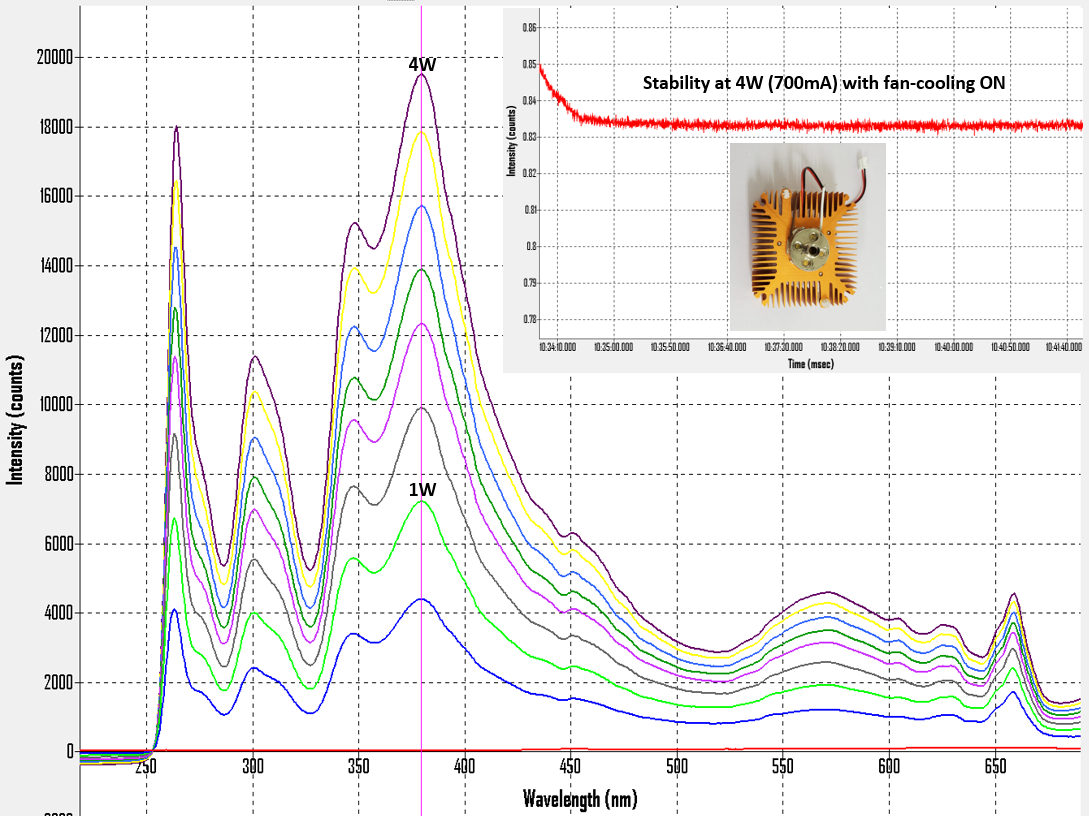Broadband UV LED sources (UVC, UVB, and/or UVA) can be produced to provide stable and high-power illumination for a wide range of spectroscopy or decontamination applications. Unlike traditional UVC LEDs or deuterium/mercury bulbs, our phosphor-converted full spectrum UV LEDs are built using advanced solid-state lighting technologies involving UVC LEDs and UVA/UVB and/or Vis-NIR phosphors. The sources can be DC-powered while covering the spectral range from 250nm to >850nm. They can be provided with heat sinks, controllers and/or internal feedback systems to achieve highly stable output by automatically monitoring the board temperature to adjust the LED intensity. Heatsinks protect the LEDs from thermal damage and help minimize phosphor thermal quenching.
A broadband UV LED source is ideal for compact and portable sterilization applications, optical absorbance, reflectance, and transmission measurements. They consume significantly less electrical power and generate less heat and more optical output compared to traditional UV sources. Typical UV sources such as deuterium lamps, for example, can consume around 25W while producing less than 1mW of optical power. A typical broadband UV LED source can consume less than 4W while delivering 100s of mW in optical power. With a small footprint, they can also be integrated into a wide range of optical equipment or be used as part of a detector calibration system. The only power supply needed is an external DC power source, which can also be provided.

Phosphor-converted high power broadband UV & Visible LED source currently available for purchase (UVLEDB01/UVLEDB02)
If you would like to order the UV LED as shown below (UVLEDB01) with an SMA connector (no heatsink), please click here.
If you would like to order the same device including the heatsink and built-in cooling fan (UVLEDB02), please click here.
If you would like to order a heatsink, built-in cooling fan, and a programmable current-controlled power supply (30V/5A) that works with any of our pcLEDs, please click here.
An FC/PC connector version is also available. If you are interested in bulk volume discounts or need more details or to place an order from outside the Continental USA, please send an email to orders@phosphortech.com.
Make sure to include the item# UVLEDB01 in addition to your full name and contact details and the number of devices you would like to order. We will then send you a quote.

Max LED Power (with cooling): 4W, 700mA @ 6V.